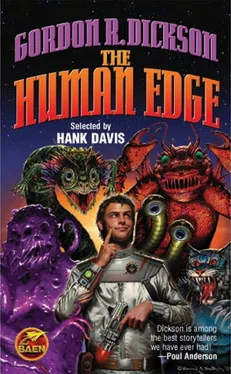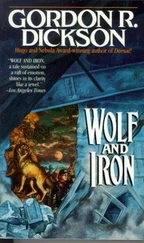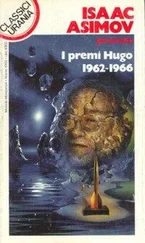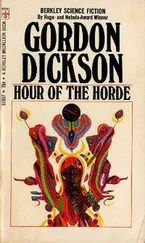The scene changed suddenly. The assembled Ruml saw before them one of the small, long-tailed, scavenging animals Kator had used as collectors. This was smaller than Kator’s and white-furred. It was nosing its way up and down the corridors of a topless box—here being baffled by a dead end corridor, there finding an entrance through to an adjoining corridor.
“This,” said the voice of the native, “is a device called a ‘maze’ used to test the intelligence of the experimental animal you see. This device is one of the investigative tools used in our study of a division of knowledge known as ‘psychology’—which corresponds to a certain extent with the division of knowledge you Ruml refer to as Family-study.”
The scene changed back to the native on the creekbank.
“Psychology teaches us humans many useful things about how other organisms must react—this is because it is founded upon basic and universal desires, such as the urge of the individual or the race to survive.”
He lifted the pole he held.
“This,” he said, “though it was used by humans long before we began to study psychology consciously, operates upon psychological principle—”
The view slid out along the rod, down the line attached to its tip, and through the surface of the water. It continued underwater down the line to a dirt worm like the one in Kator’s cube. Then it moved off to the side a few inches and picked up the image of a native underwater creature possessing no limbs, but a fan-shaped tail and minor fans farther up the body. The creature swam to the worm and swallowed it. Immediately it began to struggle and a close-up revealed a barbed metal hook in the worm. The creature, however, for all its struggling was drawn up out of the water by the native, who hit it on the head and put it in a woven box.
“You see,” said the native, cheerfully, “that this device makes use of the subject’s—a ‘fish’ we call it—desire to survive, on a very primitive level. To survive the fish must eat. We offer it something to eat, but in taking it, the fish delivers itself into our hands, by fastening itself to the hook attached to our line.
“All intelligent, space-going races we have encountered so far seem to exhibit the universal desire to survive. To survive, most seem to believe that they must dominate any other race they encounter, or risk domination themselves. Our study of psychology shows that this is a false assumption. To maintain its domination over another intelligent race, a race must eventually bankrupt its resources, both physical and non-physical. However—it is entirely practical for one race to maintain its domination long enough to teach another race that domination is impractical.
“The worm on my hook,” he said, “is known as ‘bait.’ The worm you found in the wreckage of the human spaceship was symbolic of the fact that the wreckage itself was bait. We have many such pieces of bait drifting outwards from our area of space here. And as I told Kator Secondcousin Brutogas, you never can tell what you’ll catch. The object in catching, of course, is to be able to study what takes the bait. Now, when Kator Secondcousin took the spaceship wreckage in tow, there was a monitor only half a light-year away that notified us of that fact. Kator’s path home was charted and we immediately went to work, here.
“When your expeditionary ship came, it was allowed to land on our moon and an extensive study was made not only of it, but of the psychology of the Rumls you sent aboard it. After as much could be learned by that method as possible, we allowed one of your collectors to find our underground launching site and for one of your people to come down and actually enter it.
“We ran a number of maze-level tests on Kator Secondcousin while he was making his entrance to and escaping from the underground launching site. You’ll be glad to hear that your Ruml intelligence tests quite highly, although you aren’t what we’d call maze-sophisticated. We had little difficulty influencing Kator to leave the conveyor belt and follow a route that would lead him onto a surface too slippery to cross. As he fell we rendered him unconscious—”
There was a collective sound, half-grunt, half-gasp, from the listening Ruml audience.
“And, during the hour that followed, we were able to make complete physical tests and studies of an adult male Ruml. Then Kator was put back where he had fallen and allowed to return to consciousness. Then he was let escape.”
The human got up, picked up his rod, picked up his woven basket with the underwater creature inside, and nodded to them.
“We now,” he said, “know all about you. And you, with the exception of Kator, know nothing about us. Because of what we have learned about your psychology, we are confident that Kator’s knowledge will not be allowed to do you any good.” He lifted a finger. “I have one more scene to show you.”
He vanished, and they looked instead into the immensity of open space. The constellations were vaguely familiar and those who had had experience recognized the spatial area as not far removed from their own planetary system. Through this star-dimness stretched inconceivable great shape followed by great shape, like dark giant demons waiting.
“Kator,” said the voice of the native, “should have asked himself why there was so much empty space in the underground launching area. Come see us on Earth whenever you’re ready to talk.”
* * *
The scene winked out. In the new glare of the lights, the fifty-one proud heads of families stared at Kator Secondcousin, who stared back. Then, as if at some unconscious signal, they rose as one man and swarmed upon him.
“You fools!” cackled Kator with a Ruml’s mad laugh-ter, as he saw them coming at him. “Didn’t he say you wouldn’t have any use of what I know?” He went down under their claws. “Force won’t work against these people—that’s what he was trying to tell you! Why do you have to take the bait just the way I did—”
But it was no use. He felt himself dying.
“All right!” he choked at them, as a red haze began to blot out the world about him. “Learn the hard way for yourselves. Killing me won’t do any good…”
* * *
And of course he was quite right. It didn’t.
You may have noticed by now that you can be reading a Dickson story, thinking you know what’s going on, and then suddenly—whoops, you should have watched that last step because it was a lulu! In this one, you’re really going to have trouble figuring out just what a human is up to. Fortunately, the aliens have the same problem.
If there should follow a thousand swords to carry my bones away—
Belike the price of a jackal’s meal were more than a thief could pay…
“The Ballad of East and West,” by Rudyard Kipling
In the third hour after the docking of the great, personal spaceship of the Morah Jhan—on the planetoid outpost of the 469th Corps which was then stationed just outside the Jhan’s spatial frontier—a naked figure in a ragged gray cloak burst from a crate of supplies being unloaded off the huge alien ship. The figure ran around uttering strange cries for a little while, eluding the Morah who had been doing the unloading, until it was captured at last by the human Military Police guarding the smaller, courier vessel, alongside, which had brought Ambassador Alan Dormu here from Earth to talk with the Jhan.
The Jhan himself, and Dormu—along with Marshal Sayers Whin and most of the other ranking officers, Morah and human alike—had already gone inside, to the Headquarters area of the outpost, where an athletic show was being put on for the Jhan’s entertainment. But the young captain in charge of the Military Police, on his own initiative, refused the strong demands of the Morah that the fugitive be returned to them. For it, or he, showed signs of being—or of once having been—a man, under his rags and dirt and some surgicallike changes that had been made in him.
Читать дальше












